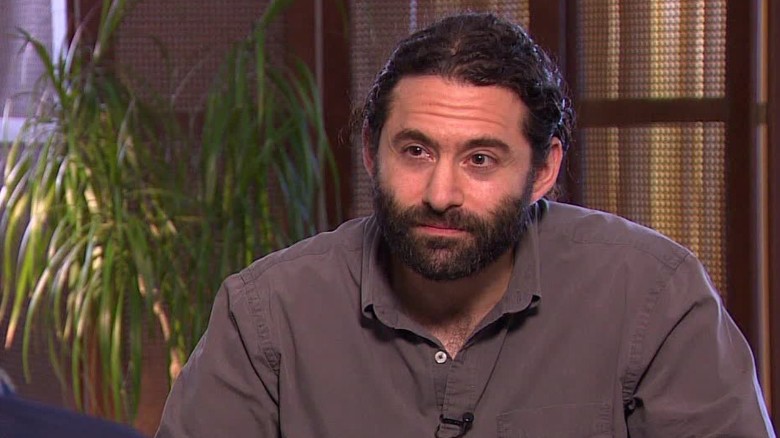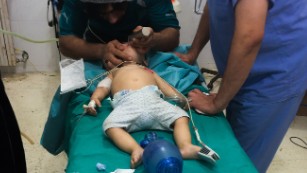What a difficult job these doctors have.
The Aleppo doctors saving lives despite 'targets on their heads'
By Nima Elbagir, Bharati Naik and Bryony Jones, CNN
Updated 2318 GMT (0718 HKT) July 14, 2016

Doctor witnesses tragedy during the siege of Aleppo 04:30
Hatay, Turkey (CNN)The smell of death hung heavy in the air as Dr. Samer Attar made his perilous journey to work two weeks ago.
On any normal day, the orthopedic surgeon would be heading to his office at Northwestern Memorial Hospital, tucked in between the shining glass skyscrapers in the beating heart of downtown Chicago.
But the Castello Road is a long way from his regular commute. Linking rebel-held areas of Aleppo to the Turkish border, it is a hotly contested strip of territory, just one of many battlegrounds in Syria's long-running civil war.
"The road smelled of rotten flesh, burnt metal, there were plumes of smoke from ordnance that had fallen previously," remembers Attar, speaking to CNN shortly after crossing the border back into Turkey.

Why prognosis for all Aleppo's children is grave
The journey to eastern Aleppo, past buildings gutted by missile strikes, areas turned into ghost towns, and even defiant roadside market stalls offering occasional signs of life, was speedy, and harrowing.
"The driver was really fast and at every moment you felt like you would get hit by a bomb or a missile or bullet," he says.
Continue reading at:
Aleppo doctors saving lives despite 'targets on heads' - CNN.com
The Aleppo doctors saving lives despite 'targets on their heads'
By Nima Elbagir, Bharati Naik and Bryony Jones, CNN
Updated 2318 GMT (0718 HKT) July 14, 2016

Doctor witnesses tragedy during the siege of Aleppo 04:30
Hatay, Turkey (CNN)The smell of death hung heavy in the air as Dr. Samer Attar made his perilous journey to work two weeks ago.
On any normal day, the orthopedic surgeon would be heading to his office at Northwestern Memorial Hospital, tucked in between the shining glass skyscrapers in the beating heart of downtown Chicago.
But the Castello Road is a long way from his regular commute. Linking rebel-held areas of Aleppo to the Turkish border, it is a hotly contested strip of territory, just one of many battlegrounds in Syria's long-running civil war.
"The road smelled of rotten flesh, burnt metal, there were plumes of smoke from ordnance that had fallen previously," remembers Attar, speaking to CNN shortly after crossing the border back into Turkey.

Why prognosis for all Aleppo's children is grave
The journey to eastern Aleppo, past buildings gutted by missile strikes, areas turned into ghost towns, and even defiant roadside market stalls offering occasional signs of life, was speedy, and harrowing.
"The driver was really fast and at every moment you felt like you would get hit by a bomb or a missile or bullet," he says.
Continue reading at:
Aleppo doctors saving lives despite 'targets on heads' - CNN.com







